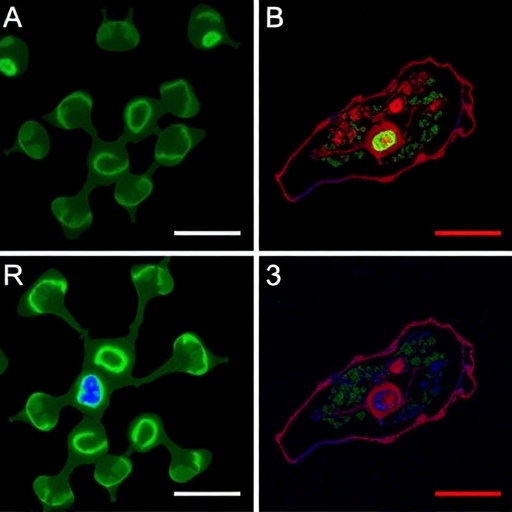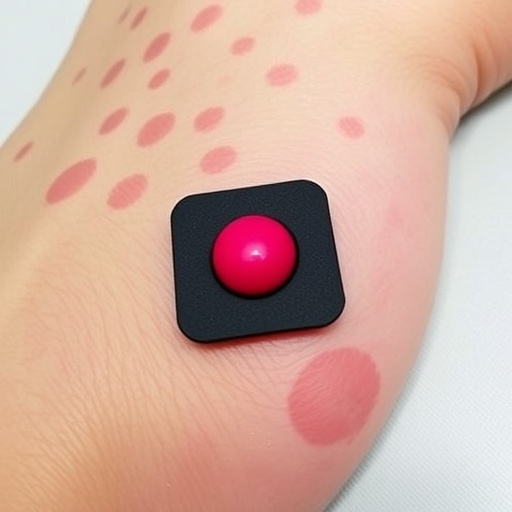Pediatric obesity remains a serious health problem in the United States, where one in five children are affected. The U.S. Preventive Services Task Force now recommends that pediatricians screen for obesity during primary care visits and refer families to behavioral intervention programs. While there is growing interest in providing these services, accessibility continues to challenge their success.

Credit: UC San Diego Health Sciences
Pediatric obesity remains a serious health problem in the United States, where one in five children are affected. The U.S. Preventive Services Task Force now recommends that pediatricians screen for obesity during primary care visits and refer families to behavioral intervention programs. While there is growing interest in providing these services, accessibility continues to challenge their success.
To address this, researchers at University of California San Diego School of Medicine conducted a randomized clinical trial comparing the leading treatment program, Family-Based Treatment (FBT), with a new Guided Self-Help (GSH) program designed to provide similar resources in a less intensive and more accessible way.
The study, publishing June 17, 2022 in Pediatrics, found that GSH and FBT were similarly effective in supporting pediatric weight loss, but families were more likely to maintain attendance in GSH.
In the clinical trial, 164 children and their parents were randomly assigned to one of the two programs. Participants were recruited from two clinic sites in San Diego County, which primarily serve Latino families. The prevalence of childhood obesity in these neighborhoods (Escondido and Chula Vista) is 38 percent.
The traditional FBT program consists of 20 one-hour group sessions over six months. FBT is held at academic research centers, which adds geographical constraints. Attrition rates in these programs are high, with many parents noting scheduling issues, transportation difficulties and competing work and family responsibilities as contributing factors.
In response to these challenges, the GSH model was developed to provide shorter treatment sessions and greater scheduling flexibility. The new program consists of 14 visits, each 20 minutes in length and held at the child’s primary care clinic. Families are given material to practice between sessions in a self-directed manner, and then meet individually with a health coach to review and troubleshoot strategies.
Both programs teach families how to self-monitor food intake, set healthy goals and modify the home environment to promote behavioral change. Additional sessions address topics of body image, bullying and emotional health.
“The program is not framed around weight loss per se, but about developing healthy lifestyle behaviors,” said the study’s corresponding author Kyung E. Rhee, MD, professor of pediatrics at UC San Diego School of Medicine.
Nevertheless, children in both groups showed significant reductions in their body mass index percentiles, which were largely maintained at the time of the six-month follow-up. However, families assigned to GSH showed a nearly 70 percent lower risk of attrition, and reported greater satisfaction and convenience. GSH participants attended more than half of the treatment sessions while FBT participants only attended one in five sessions on average.
“The success of the Guided Self-Help program is really promising for both patients and physicians,” said Rhee. “It’s always rewarding to hear that families were so appreciative of our help, but we were also surprised by how grateful the physicians were to have this program available in their office. These can be difficult conversations for them to initiate during standard checkups, but knowing they had a clear and effective way to provide care was really empowering for them.”
In the current program, GSH health coaches were trained and employed by the research team. To sustain the program, Rhee said health care groups will have to work within the current primary care system to identify individuals who can provide these services on location. The goal, she said, is to work toward a collaborative care model in which clinics employ their own behavioral counselors and support the delivery of additional services at schools and community centers.
“We cannot make a difference if the families can’t show up for treatment,” said Rhee, “so we owe it to them to make these programs as accessible and effective as possible.”
Co-authors include: Lourdes Herrera, David Strong, Eastern Kang-Sim, Yuyan Shi and Kerri N. Boutelle, all at UC San Diego.
# # #
Journal
PEDIATRICS
DOI
10.1542/2020-000123
Subject of Research
People
Article Publication Date
17-Jun-2022




